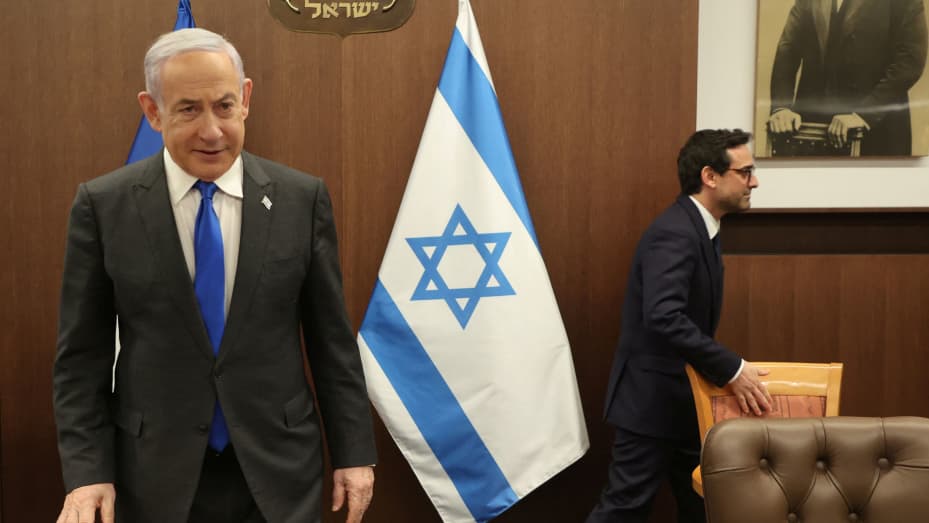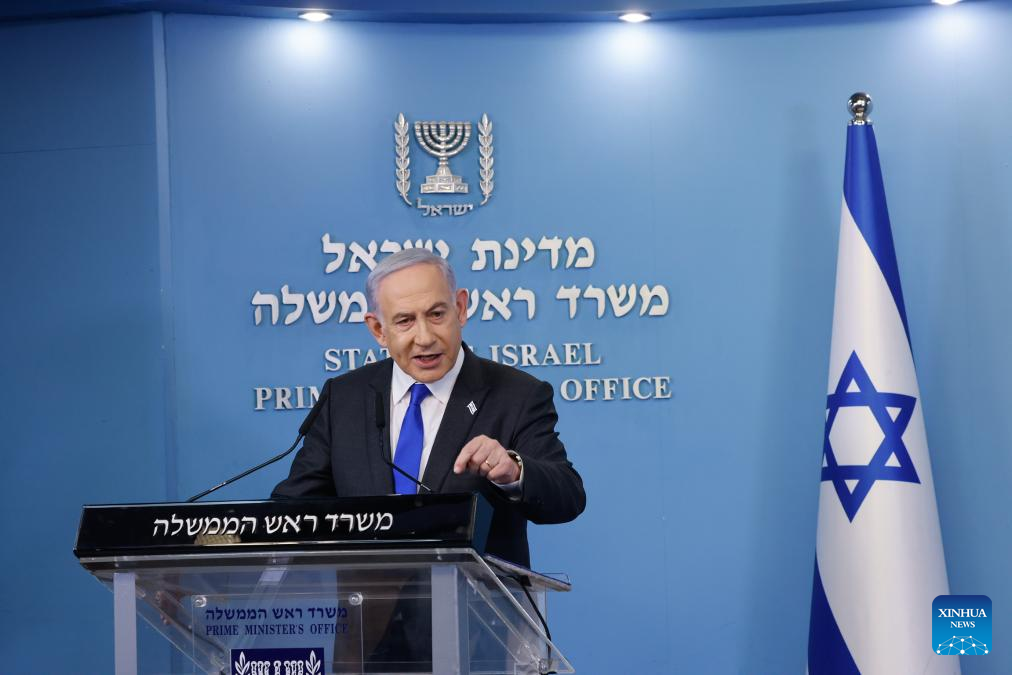Israeli Prime Minister Benjamin Netanyahu has cast doubt on the viability of a U.S.-backed proposal to end the 8-month-long war in Gaza, stating he would only agree to a “partial” ceasefire that would not conclude the conflict. This stance has sparked controversy and potentially complicates ongoing diplomatic efforts to resolve the crisis.
In a televised interview on Israeli Channel 14, Netanyahu expressed willingness to consider a partial deal that would secure the release of some of the approximately 120 hostages still held in Gaza. However, he emphasized Israel’s commitment to continuing the war after any pause to achieve the goal of eliminating Hamas.

These comments, while not dramatically different from Netanyahu’s previous positions, come at a crucial juncture as Israel and Hamas appear to be drifting further apart on the latest ceasefire proposal. The timing of his remarks could represent a significant setback for mediators attempting to broker an end to the conflict.
Netanyahu’s stance contrasts sharply with the outlines of the deal recently detailed by U.S. President Joe Biden, who framed the plan as an Israeli initiative. The three-phased proposal would facilitate the release of remaining hostages in exchange for hundreds of Palestinian prisoners held by Israel. However, disputes and mistrust between Israel and Hamas persist over the implementation of the deal.
Hamas has insisted on a permanent ceasefire and full withdrawal of Israeli forces from Gaza as conditions for releasing the remaining hostages. While Biden’s announcement of the proposal included both these elements, Netanyahu’s recent comments suggest a divergence from this understanding.
The Israeli leader maintains that Israel is committed to destroying Hamas’ military and governing capabilities to prevent future attacks similar to the October 7 assault. A complete withdrawal of Israeli forces from Gaza, where Hamas leadership and much of its forces remain intact, would likely leave the group in control of the territory and able to rearm.

Netanyahu also indicated that the current phase of fighting in Gaza is concluding, potentially allowing Israel to redirect more troops to its northern border to confront the Lebanese militant group Hezbollah. This shift could open up a new war front, further complicating the regional situation.
The Prime Minister’s comments have strained Israel’s relationship with the United States, its primary ally, which has invested significant diplomatic efforts in the latest ceasefire proposal. U.S. Secretary of State Antony Blinken emphasized the importance of avoiding further escalation in the Middle East during recent talks with Israeli Defense Minister Yoav Gallant in Washington.
As diplomatic efforts continue, the gap between the parties’ positions appears to be widening. Netanyahu’s refusal to consider a full ceasefire challenges the framework of the U.S.-backed proposal and raises questions about the feasibility of a negotiated resolution to the conflict in the near term.
The ongoing crisis continues to have profound humanitarian implications for Gaza’s civilian population, while the fate of the hostages remains a critical concern for their families and the international community. As negotiations progress, the challenge of balancing security concerns, humanitarian needs, and diplomatic pressures will likely continue to shape the trajectory of this complex and enduring conflict.



